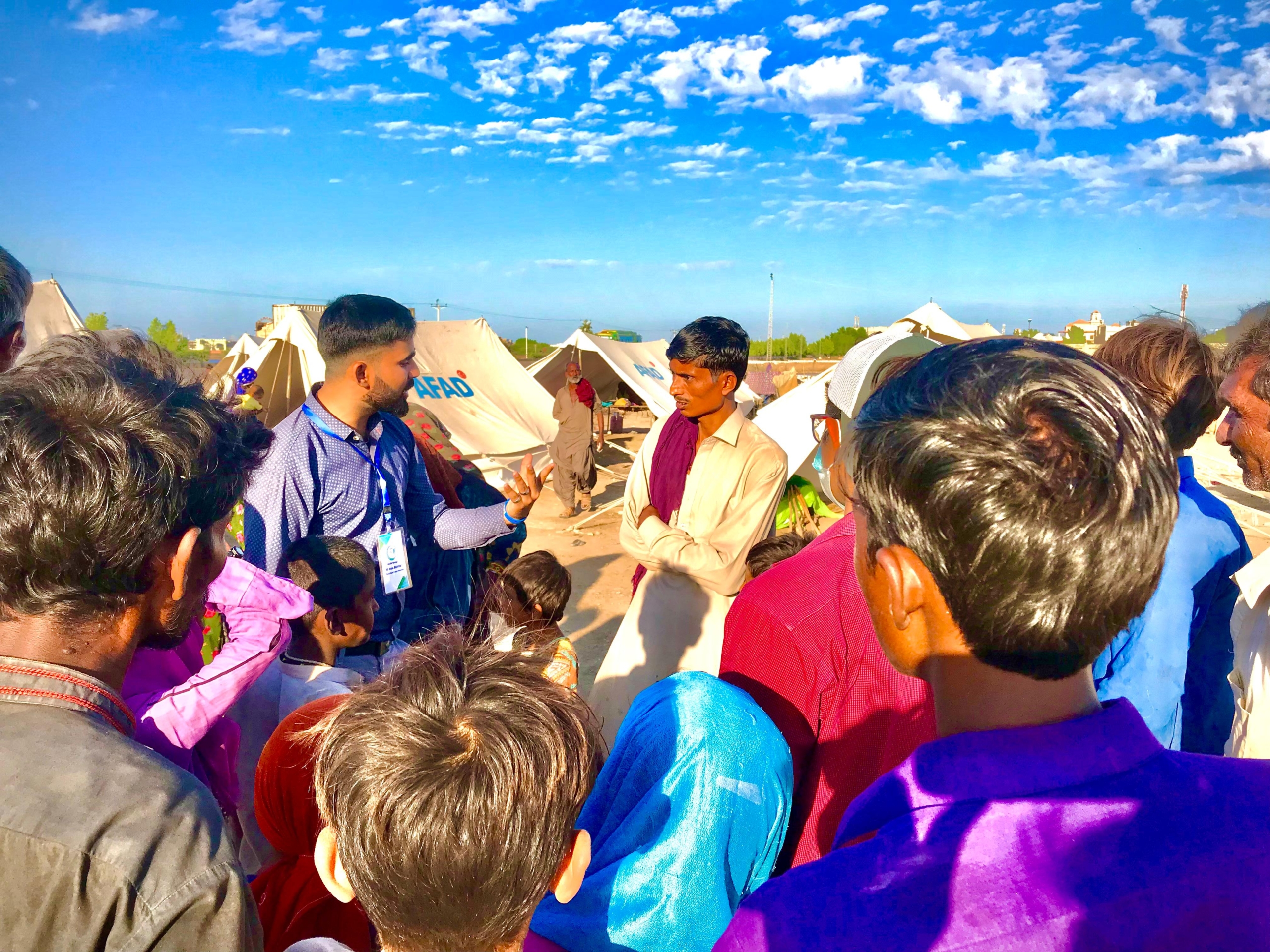
For the millions of people uprooted by crisis or conflict, finding adequate health care can be nearly impossible. Displaced populations often face already overwhelmed health systems — and the strain on resources makes it harder for people to access necessary care. This is especially dangerous for people living with chronic noncommunicable diseases like type 1 diabetes (T1D), who face immediate and long-term health risks, including death, when care is inaccessible in times of crisis.
Peer support groups can play a critical role in addressing the unique challenges faced by people living with T1D in humanitarian settings. These groups — often informal in nature — serve as sources of practical tips, firsthand insights, and emotional support that are crucial for managing T1D effectively. By fostering a sense of belonging and solidarity, peer networks help members navigate the challenges of their condition more confidently and competently, even in the most dire situations. Some groups are also able to connect people directly to access to the insulin and supplies they need to survive.
At the 4th Symposium on Diabetes in Humanitarian Crisis, hosted by the International Alliance for Diabetes Action (IADA), global health leaders and advocates shed light on this frequently overlooked aspect of disease management.
The Impact of Peer Support: Bringing Care to Those Who Need it the Most
Peer networks create avenues for people living with diabetes to validate one another’s experiences and overcome shared obstacles. Meethi Zindagi, founded by Sana Ajmal, is a diabetes organization in Pakistan with peer support at its core.
During the devastating floods across Pakistan in 2022, this peer support network proved invaluable for individuals living with diabetes. Relief organizations were already juggling competing priorities, leaving a gap in diabetes care. As Ajmal shared, “the response that we got was always, there’s too much to deal with. We have trauma to deal with, there are disease outbreaks, there is infectious disease…there are food shortages.” As an organization founded by people living with T1D, Meethi Zindagi took matters into their own hands. Volunteers went door to door, from mosques to camps, to find people living with T1D that were affected by the floods to provide insulin and other essential diabetes supplies. Many lives would have been lost if it weren’t for Meethi Zindagi’s active and vocal peer support network.
In resource-limited settings, empowering peer support groups with resources and training is a cost-effective way to enhance disease management. This approach not only leverages existing community structures but also reduces the burden on overstretched healthcare systems by promoting self-management and peer-led interventions. In Uganda, clinics recognize people living with T1D as “warriors” who often have great courage, strength, and perseverance that can inspire others.
Vivian Nabeta, founder of the Sonia Nabeta Foundation, a nonprofit organization working with children with T1D in Uganda, underscored the importance of this approach. “We believe in a world of warriors by warriors because in Africa, we face chronic capacity issues in T1D, so if we don’t empower, educate, and equip the lived experience to support that capacity, we are wasting a valuable partnership.”
In the era of digital connectivity, virtual peer support groups also emerge as both a scalable and sustainable solution, ensuring continuity of care even in the face of crises. Virtual platforms can increase reach and engagement, allowing for the inclusion of people living in rural areas who may not have access to traditional in-person support groups.
Empowering Communities, Encouraging Action, Enhancing Care
The benefits of peer networks go well beyond disease management. During the IADA-hosted Symposium, Cyrine Farhat, founder of Positive on Glucose and a global diabetes advocate, reflected on her experience living with T1D in Lebanon and the challenges faced by people dealing with ongoing crises. “It’s really beautiful to see how people can grow and flourish from being in peer-to-peer support groups.” Participants who had previously hidden their diabetes diagnosis, fearful of the stigma associated with the condition, felt supported and empowered to be open with their family and friends.
At Helmsley, we recognize that prioritizing and funding approaches like these can help create sustainable and impactful health support systems. By allocating specific resources for peer support initiatives, donors can help establish supportive communities for individuals facing health-related challenges, particularly in humanitarian settings. This funding can help develop structured programs, train facilitators, and reach the most vulnerable populations.
Investing in peer support initiatives not only improves health outcomes but also fosters resilient communities. It allows those living with T1D to always count on the lifesaving support of a robust network of people who have their backs. By prioritizing these strategies, the global health community can ensure that even in the most challenging of circumstances, no one is left behind.